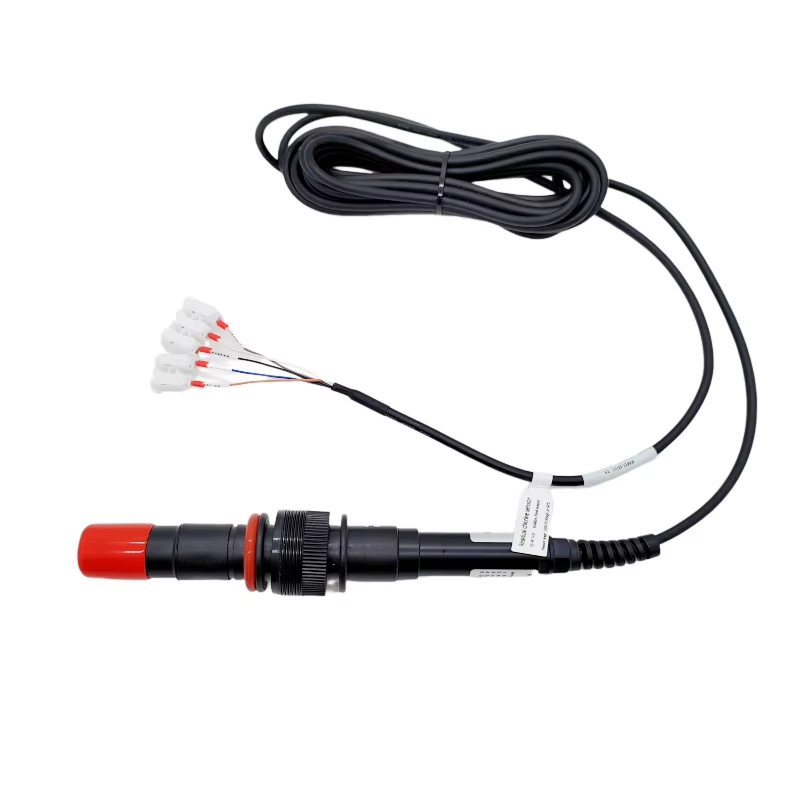Seoul, South Korea – In a bold leap towards enhancing public health and environmental safety, South Korea has adopted Constant Voltage Residual Chlorine Sensors across its drinking water systems. This cutting-edge technology, which allows for real-time monitoring of chlorine levels in water, is transforming how the country ensures the safety of its drinking water supply and significantly improving water management practices.
A Shift in Water Quality Monitoring
Historically, measuring residual chlorine levels in water systems relied on manual sampling and analysis, which often delayed response times to potential contamination. The deployment of Constant Voltage Residual Chlorine Sensors allows water treatment facilities to monitor chlorine levels continuously and automatically. This advancement eliminates labor-intensive processes and enables immediate adjustments to water treatment protocols, ensuring that safe chlorine levels are maintained at all times.
Public Health Benefits
The primary goal of this initiative is to enhance public health by minimizing the risks of waterborne diseases. According to data from the South Korean Ministry of Environment, bacterial contamination in water sources has dropped significantly since the implementation of these sensors in early 2023. Dr. Min-Jae Han, a public health expert, noted, “The ability to continuously track chlorine levels means that we can rapidly address any issues, significantly reducing the likelihood of outbreaks caused by contaminated water.”
The sensors have proven particularly beneficial in urban areas where rapid population growth has strained existing water infrastructure. Cities like Seoul and Busan have reported improved water quality monitoring capabilities, leading to higher consumer confidence in municipal water systems.
Economic Impact on Water Utilities
From an economic perspective, the integration of Constant Voltage Residual Chlorine Sensors is helping to reduce operational costs for water utilities. By automating chlorine monitoring, these sensors minimize the risks of over-chlorination, which can lead to harmful by-products and increased treatment costs. Additionally, the technology allows for better resource management, as utilities can optimize chemical usage and reduce waste.
Many local water utilities are benefiting from substantial savings that can be redirected to other essential services. Park Soo-yeon, director of the Korea Water Resources Corporation, stated, “The investment in sensor technology is proving valuable not only for maintaining water quality but also for the sustainable operation of our facilities.”
Environmental Sustainability
The adoption of these sensors also aligns with South Korea’s sustainability goals. As the nation grapples with environmental challenges such as climate change and water scarcity, the ability to monitor and control water quality efficiently helps preserve water resources. These sensors encourage a more responsible approach to water treatment, ensuring that water is both safe for consumption and managed in an environmentally friendly manner.
Furthermore, the data collected from these sensors are being utilized in research and development initiatives aimed at improving water treatment processes. This data-driven approach fosters innovation and supports the country’s broader goals of smart water management and environmental conservation.
Future Prospects
Looking ahead, South Korea plans to expand the use of Constant Voltage Residual Chlorine Sensors into rural areas and smaller municipalities, where water quality monitoring has historically been less consistent. The Ministry of Environment aims to complete the nationwide rollout by 2025, with a focus on ensuring that all communities can benefit from improved water safety measures.
As other nations observe South Korea’s strides in water quality technology, experts believe that the success of these sensors could inspire similar initiatives globally. Ultimately, the implementation of Constant Voltage Residual Chlorine Sensors is not just a technological upgrade; it represents a crucial step forward in safeguarding public health, promoting sustainability, and ensuring that water quality remains a top priority in South Korea.
Conclusion
The impact of Constant Voltage Residual Chlorine Sensors on South Korea is profound, ushering in a new era of water safety and management. By improving monitoring capabilities, enhancing public health outcomes, and promoting economic and environmental efficiency, this innovative technology sets a new standard for water quality management and serves as a model for other countries striving for similar advancements.
For more water sensor information,
please contact Honde Technology Co., LTD.
Email: info@hondetech.com
Company website: www.hondetechco.com
Post time: Feb-11-2025


